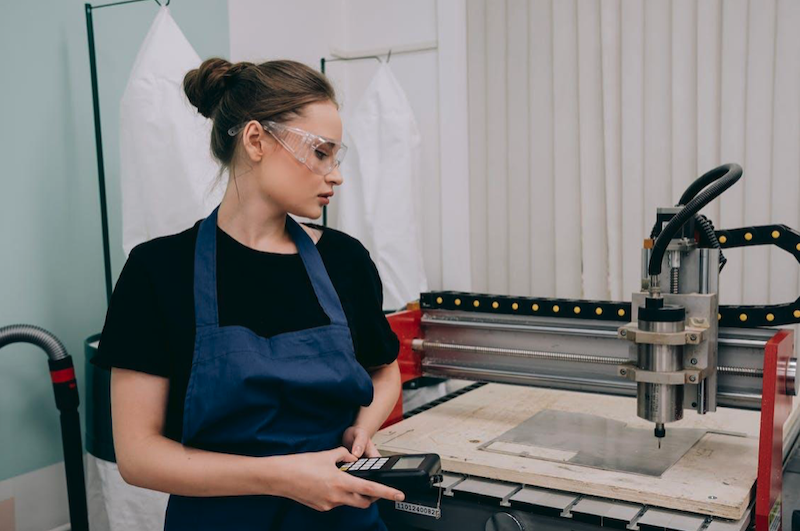The manufacturing industry is experiencing a significant transformation driven by the adoption of advanced technologies.
Among these, Generative Artificial Intelligence (Generative AI) stands out as a powerful force in this change. It’s a groundbreaking aspect of AI with the potential to reshape conventional manufacturing processes.
Its ability to create new designs, improve production efficiency, and stimulate innovation is causing a major shift in the industry.
For a deeper understanding of Generative AI and its transformative impact, you can explore more about Generative AI here.
In this blog, we’ll explore how Generative AI is profoundly influencing the manufacturing sector. We’ll delve into its impressive advantages and essential role in revolutionizing traditional manufacturing methods.
1. Enhanced Design Innovation
Generative AI stands at the forefront of design innovation in manufacturing. By leveraging vast datasets and complex algorithms, it explores design spaces that surpass human limitations, generating myriad design alternatives swiftly and efficiently.
This capability empowers engineers and designers to create highly optimized and innovative designs, fostering creativity and pushing the boundaries of what’s feasible.
For instance, Generative AI can develop intricate, optimized designs for components or products, achieving a balance between functionality, performance, and manufacturability.
2. Rapid Prototyping and Product Development
The integration of Generative AI expedites the product development cycle significantly. Its ability to swiftly generate and evaluate multiple design iterations accelerates the prototyping and testing phases.
This rapid iteration loop enables manufacturers to bring new products to market faster, facilitating agile responses to changing consumer demands and technological advancements.
For example, automotive companies use Generative AI to streamline the design and prototyping of vehicle components, reducing lead times from concept to production-ready parts.
This acceleration in development not only sets a new standard in product innovation but also paves the way for more cost-effective and sustainable manufacturing practices, as we will explore in the following section.
3. Cost Efficiency and Waste Reduction
Generative AI optimizes manufacturing processes by minimizing material waste and reducing production costs.
Through its ability to generate designs that emphasize material efficiency while meeting performance requirements, it contributes to sustainable resource usage.
By minimizing waste in the design phase itself, manufacturers can significantly reduce production costs.
Additionally, its predictive capabilities aid in preemptive maintenance, mitigating unexpected machinery breakdowns and minimizing downtime, further enhancing cost-effectiveness.
4. Customization and Personalization
In a market increasingly driven by personalization, Generative AI plays a pivotal role in facilitating mass customization.
By swiftly generating design variations tailored to individual customer requirements, manufacturers can address diverse market segments efficiently.
For instance, in the footwear industry, Generative AI assists in creating customized shoe designs based on individual foot measurements and style preferences, offering customers personalized products at scale.
5. Sustainability and Environmental Impact
Generative AI’s focus on optimizing designs for efficiency extends to sustainability. By analyzing material usage and production processes, it helps create environmentally friendly designs that reduce energy consumption and environmental impact.
For example, it assists in designing structures with optimal material usage, contributing to eco-friendly manufacturing practices.
6. Workforce Empowerment
Rather than replacing human workers, Generative AI augments their capabilities. It automates repetitive tasks, enabling human resources to focus on strategic and creative aspects of manufacturing.
This collaboration between AI and human expertise enhances productivity and job satisfaction among employees.
Conclusion
The integration of Generative AI in manufacturing heralds a new era of innovation, efficiency, and sustainability.
Its capacity to revolutionize design, accelerate product development, optimize resource usage, and enhance customization positions it as a game-changer in an increasingly competitive manufacturing landscape.
As this technology matures, its benefits will continue to drive manufacturing industries toward greater efficiency, flexibility, and environmental responsibility.

